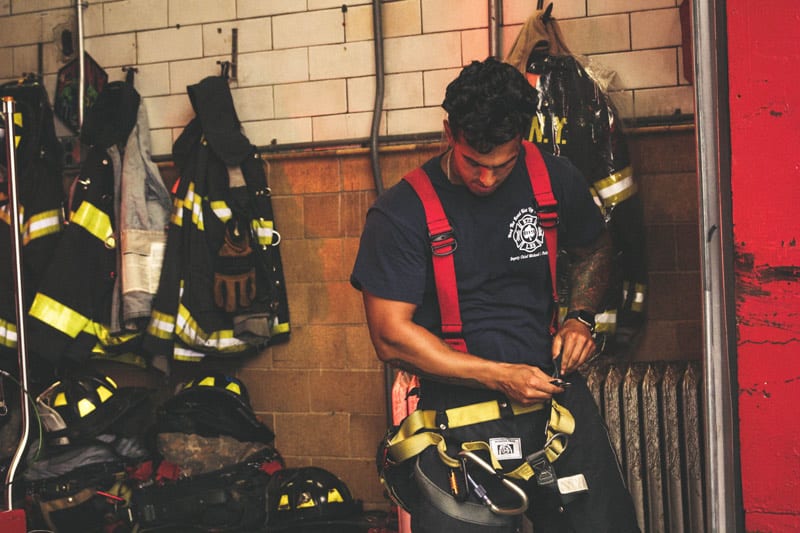Post-traumatic stress disorder (PTSD) is by no means a new mental health condition. However, the heightened public awareness of anxiety and depression in recent years has many people re-evaluating their relationship with mental health and looking to improve their interactions and make life more manageable for others.
Educating ourselves about PTSD is important not just for the safety of our loved ones but for a greater understanding of society at large and the challenges facing many people.
In this article, we’ll analyze why we should be educating ourselves about PTSD and what steps individuals can take to achieve that.
What is PTSD (And why is it important)?
PTSD is typically developed after experiencing or seeing something traumatic.
PTSD is such a personal condition that what’s traumatic is difficult to define, with certain events having a much stronger impact on some people than others.
PTSD symptoms can start immediately or gradually develop over weeks, months, or even years. Typically, this process will appear as a personality change within six months.
While you are likely to recover from PTSD, some people require years of treatment. However, it is common to seek relief through various methods.
According to SingleCare, 1 in 13 people across the United States will experience PTSD in their lifetime. This is a huge number that demands greater awareness on a national and international scale.
What are the causes and signs?
An essential part of educating ourselves about PTSD in 2021 involves recognizing the signs and understanding the causes.
What causes PTSD?
While everyone deals with trauma in different ways, a few events typically result in PTSD when experienced or witnessed. These include:
- Serious injury
- Physical or sexual abuse
- Childhood abuse
- Domestic abuse
- Exposure to work-related trauma
- Childbirth
Not everyone who experiences these events will develop PTSD. It is more common if you are closely tied to the event. However, if the event is unexpected, ongoing for an extended period, results in significant changes to your life, or happens while you’re already struggling with depression, you are at a higher risk.
What are some signs and symptoms?
People aren’t always open about the traumatic events they’ve experienced in their lives, so knowing how to spot the signs and symptoms of PTSD is crucial.
Here are just a few signs people may display while reaching out for help or that may show up in their behavior.
- Difficulty sleeping, including nightmares
- Reliving the experience through flashbacks and dreams
- Feeling emotionless or dissociated
- Negative moods
- Emotional dysregulation
- Problems forming and keeping relationships
- Negative self-perception
- Anger and irritability
- Hypervigilance and the feeling of constant alert
If you or anyone you know are exhibiting these symptoms, consider consulting someone about the possibility of having PTSD.
Remember, PTSD doesn’t always look like it does in the movies, with flashbacks playing through your mind as you experience a panic attack. It can be a much slower process that takes over all aspects of your self-perception and ability to develop relationships.
How prevalent is PTSD?
Trauma is not as rare as we might think.
According to the U.S Department of Veteran Affairs, 6 out of 10 men and 5 out of 10 women experience trauma at some point in their lives.
PTSD can happen to everyone, and while it usually takes different forms across genders and ages, a number of factors outside of people’s control can also bring on symptoms.
Who is most likely to suffer?
It’s a fact that PTSD is more prevalent in some lines of work than others, largely for obvious reasons. While not limited to these roles, PTSD is particularly common in:
High-risk professions
There are a number of professions that can be considered high-risk. Most commonly, this refers to:
The proximity to tragic, stressful, and dangerous events these jobs often demand makes it significantly more likely for people within them to develop symptoms and signs of PTSD.
VA Claim Pros, which helps veterans access the healthcare benefits they’re entitled to, has noted how common invisible illnesses such as PTSD are in people accessing their services. Likewise, the rehabilitation facility The Recovery Village has written about the commonality of PTSD in first responders.
For anyone closely entwined with these professions, the high occurrence of PTSD within them will come as no surprise. However, despite efforts to reduce trauma, develop safer working environments, and a greater general understanding of PTSD, it shows no signs of diminishing.
Healthcare and mental health professionals
Much like high-risk professionals, healthcare workers run the risk of developing PTSD due to the demands of their work and proximity to tragedy.
The COVID-19 pandemic has only amplified this, with many doctors, nurses, and mental health practitioners finding it difficult to continue their role in the face of the suffering the pandemic has caused.
In March 2021, healthcare publication The Lancet noted the extreme strain professions within the sector are under worldwide, explain how they have faced “many additional—often avoidable—sources of stress and anxiety, and long shifts combined with unprecedented population restrictions, including personal isolation, have affected individuals’ ability to cope.”
People close to trauma
It goes without saying that the experience or dealing with someone suffering from PTSD can be traumatic itself.
While not common, there have been stories of people developing trauma by association, watching their loved ones suffer panic attacks or developing personality disorders, marking the start of their own difficulties with PTSD.
This is why personal care is so important. Having the right kind of professional support can help stop people who are not prepared for this challenge from developing worse symptoms.
Journalists and legal professionals may also develop PTSD due to their involvement in traumatic cases, particularly when working on violent crimes or cases of sexual assault. The Journalist’s Resource has written extensively on this topic, detailing the experience of many within the profession.
How can we educate ourselves?
While watching a loved one suffer with PTSD can be traumatic in itself, there are ways we can educate ourselves to better prepare for it and provide informed comfort through this difficult time.
The National Center for PTSD is a brilliant place to start for information and actionable resources, particularly their Family Booklet.
Alternatively, make it a priority to:
- Educate yourself on developing knowledge of the signs and symptoms of PTSD
- Support loved ones if they are struggling
- Join support groups to gain more first-hand knowledge
PTSD is an often misunderstood condition and one that might not be getting the mainstream coverage it deserves. However, there is plenty people can do to educate themselves about PTSD, particularly if they think a loved one is susceptible or they’ve been through a traumatic event themselves.
If you or someone you know experiences mental health issues, it is important to seek help from a qualified professional. Our Resource Specialist can help you find expert mental health resources to recover in your community. Contact us now for more information on this free service to our users.
About the Author: Stevie Nicks is Digital Editor at Just Another Magazine – a website that covers the topics you care about. You’ll find articles about lifestyle, travel, fashion, trends, and relationships on our site – each of which is written in our unique style.
Mental Health Month 2021
Access for All
May is Mental Health Month, a time to spread public awareness and education about mental health disorders and reflect on the impact of mental illness on individuals and their families.
It is also a time to recognize and commit to changing the racial and economic inequities in our health care system, particularly with respect to mental health.
www.rtor.org and Laurel House are committed to the advancement of racial equity and social justice, and to making mental health services accessible to all.
Photo by Aidan Bartos on Unsplash
The opinions and views expressed in any guest blog post do not necessarily reflect those of www.rtor.org or its sponsor, Laurel House, Inc. The author and www.rtor.org have no affiliations with any products or services mentioned in the article or linked to therein. Guest Authors may have affiliations to products mentioned or linked to in their author bios only.
Recommended for You
- How to Protect Your Mental Health During the Holidays with a Gentle Reset - December 17, 2025
- Crisis Transport for Teens: A Compassionate Bridge to Mental Health Care - December 15, 2025
- Why a Mental Health Retreat Can Transform Your Recovery Journey - December 11, 2025





